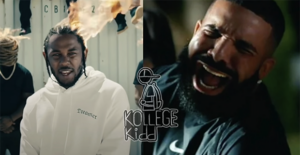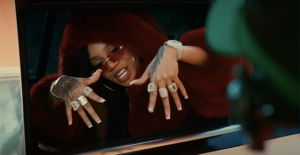
There is a reason why Chief Keef is the most interesting person amongst fans in the urban community. It could be perhaps because Sosa himself is from the urban community.
Swizz Beatz attributes the Interscope artist’s popularity to his connection with the hood.
“Chief Keef got a story that the average person in the hood can connect to,” he told VladTV.
The “Everyday Birthday” producer says he knows a thousand Chief Keefs. The only difference, he said, is Chief Keef was “blessed” with an “opportunity to have a voice.”
“The Chief Keefs I know, they don’t got no voice,” Swizz Beatz explained. “He made it through the door to get a voice. Even going through that door, you can see a struggle. It’s almost like people are watching a movie waiting to see what happens next. And that’s why they into Chief Keef.”
Chief Keef has been an undeniable force since his introduction into the music industry. The rapper, who hails from O’ Block, has been a fixture on social media and generates millions of views on music videos posted to YouTube.
Swizz Beatz acknowledges Sosa’s influence.
“I just want to make sure he’s making all the right decisions cause he’s a great artist, he got great influence, there’s a lot of people that look up to him,” he said.
Swizzy reasoned Chief Keef’s newfound fame forces him to continue to carry on his persona for his own protection.
“And you can tell that he’s not all the way a negative person,” he continued. “All the goons I know, they not negative. You think they want to? They negative because they have to? You gotta be that lion when you in the jungle. He still in Chicago. He gotta still do what he doing. You can’t expect him to put all of his guards down. Everybody in his team ain’t eating like that. It’s a process and he’s young.
Chief Keef, born Keith Cozart, is an accurate depiction of millions of American urban youths.
Keef shows that poverty, generational racism and a failed education system continues to leave many children neglected in this country.
Though Chief Keef wasn’t born during the Civil Rights Era, there were millions of black and Latino children who were struggling to survive in America during that time period just as he is in the present.
Despite Chief Keef’s rap lyrics being nothing short of violent and profane, it is his truth, as well as thousands of teens just like him.
Chief Keef hails from the Parkway Gardens in the crime-ridden Englewood neighborhood on Chicago’s South Side, an area heavily embedded with a strong gang presence.
The “I Don’t Like” rapper once acknowledged that many people don’t make it out of his community.
“…I Come From Oblock A Hood Mfs Barely Make It out Of,” he wrote.

Chicago, dubbed “ChIraq” by residents for its high rate of violence, has long been plagued by a disproportionately high homicide rate.
Chicago, according to statistics, has a higher homicide rate than Kabul, Afghanistan.
In 2012 alone, the city recorded 506 murders.
In Chicago, the homicide rate is disproportionately higher amongst its minority residents. There have been 2,045 homicides since Jan. 1, 2007 amongst the African American demographic, according to Red Eye Chicago. There were 647 homicides amongst Caucasians since 2007.
Though it can be argued whether or not Chief Keef is legend, it can’t be argued that he is a survivor.
The rapper celebrated his 18th birthday Aug. 15, a milestone in any young man’s life.
Sadly, many urban youths are not as fortunate.
Until the country is willing to address the issues plaguing the urban community, there will continue to be Chief Keefs.
Sign up to become a member of kollegekidd.com by clicking here.
For Updates, Be sure to Follow kollegekidd.com on Twitter @_KollegeKidd by clicking here.
You can also stay up-to-date by liking kollegekidd.com FaceBook Page by clicking here





